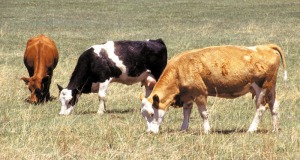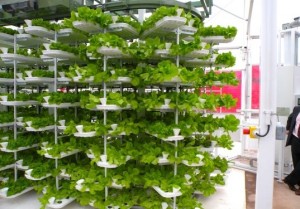 The Middle East and North Africa (MENA) region has been a rapidly growing market for livestock products and red meat exports in the past decade. According to the exporters from India and Australia, the MENA countries are now increasingly depending on foreign imports of cattle and sheep and demanding high value portions of quality red meet. The fast growth in the hospitality industry had lead to a major revive in the livestock industry; the increasing population in the region due to its high economic prospects is also a major growth factor.
The Middle East and North Africa (MENA) region has been a rapidly growing market for livestock products and red meat exports in the past decade. According to the exporters from India and Australia, the MENA countries are now increasingly depending on foreign imports of cattle and sheep and demanding high value portions of quality red meet. The fast growth in the hospitality industry had lead to a major revive in the livestock industry; the increasing population in the region due to its high economic prospects is also a major growth factor.
The country is importing majority of its livestock products from other countries all over the world to meet the increasing demand. Livestock expansion projects are growing around the GCC region; despite the truth that almost all the GCC countries are highly dependent on livestock imports from other regions of the world to meet their domestic demand.
All GCC countries are exploring new ways to improve their poultry and livestock sector through enhanced domestic production. This gives an excellent opportunity for relevant product manufacturers and service providers to capitalize on this sector. The adaptation of modern agricultural practices for the production of livestock feed and the incorporation of such techniques in the livestock rearing can make wonders in the industry which indeed lead to limited export needs.
Sustainable livestock feed production requires advanced farming practices such as Alfaculture, in which the production of green fodders are carried out through the method of soilless farming- Hydroponics. Hydroponic green fodder production or Alfaculture is sustainable in many ways, as it requires only less water and arable land for the plant cultivation. Hydroponic green fodders are the most sustainable livestock feed and the best suited for the MENA region.
 Cattle, sheep and goats play an important role in the emerging markets in GCC countries: their milk and meat are important protein sources for the people in the region. The production rate of livestock and dairy products in the MENA countries is higher than many other developed nations in the world. According to experts, per capita consumption of animal meat and products could rise by a further 44%, by the year 2030.
Cattle, sheep and goats play an important role in the emerging markets in GCC countries: their milk and meat are important protein sources for the people in the region. The production rate of livestock and dairy products in the MENA countries is higher than many other developed nations in the world. According to experts, per capita consumption of animal meat and products could rise by a further 44%, by the year 2030.
There have been sharp increases in livestock numbers in the Middle East countries, causing grazing pressures on limited arable areas to surpass their sustainable capacity; and Alfaculture or Hydroponic green fodder production is the most convenient and healthy solution to meet the issue.
No comments:
Post a Comment